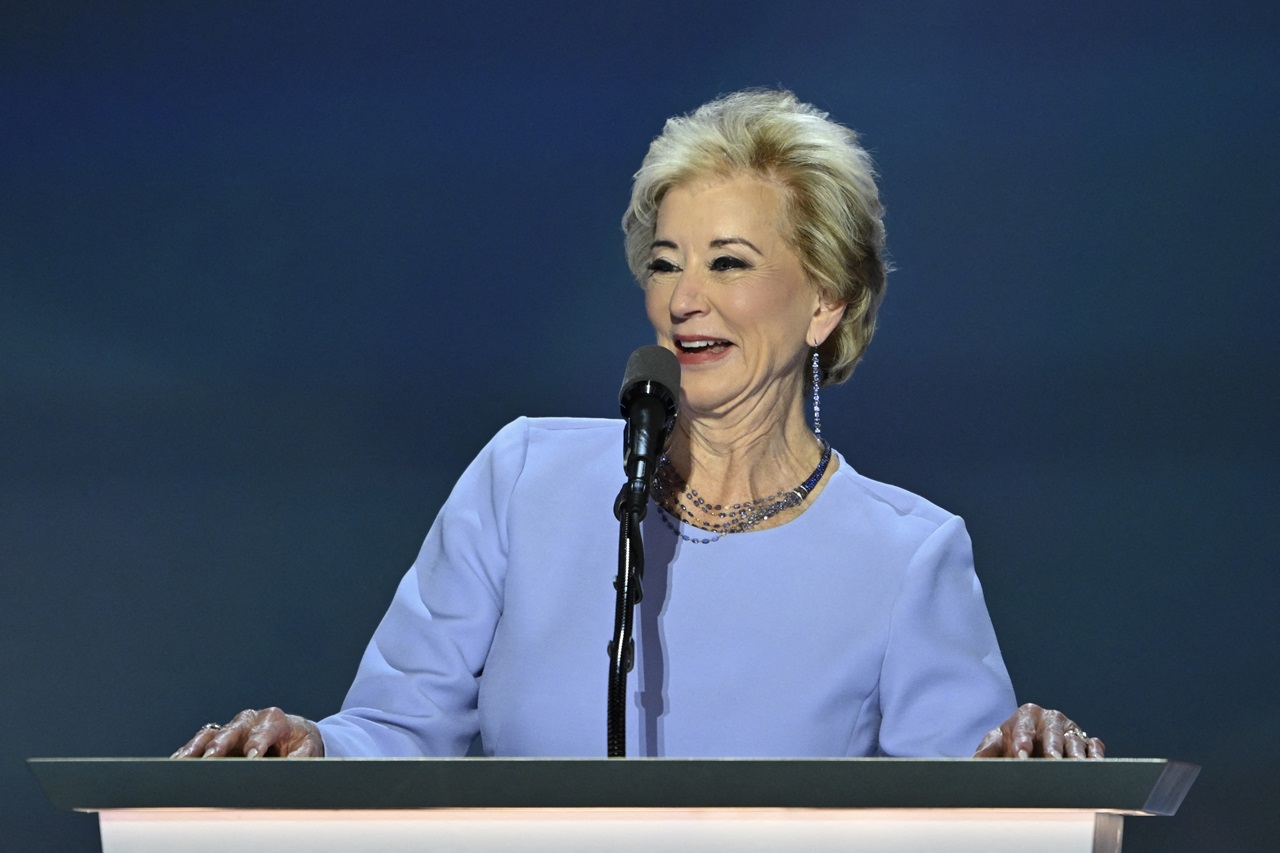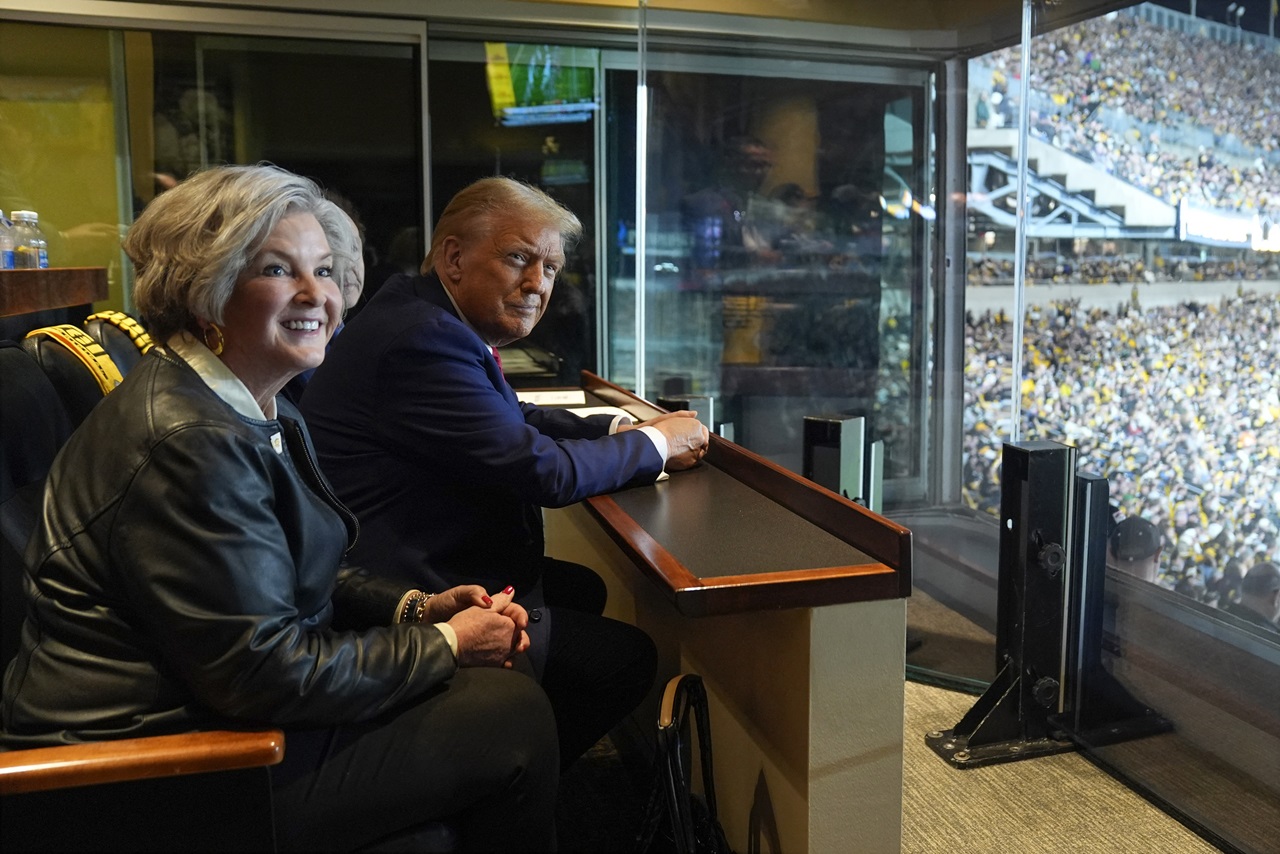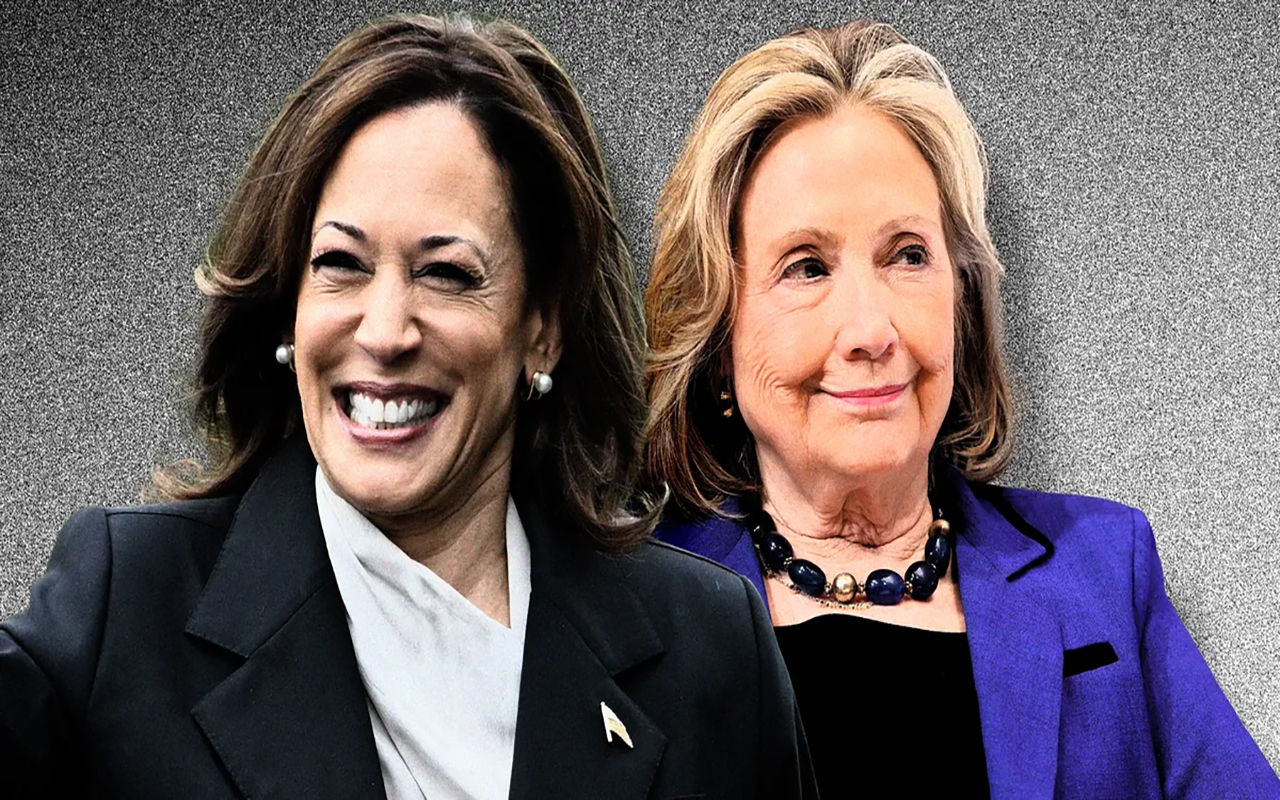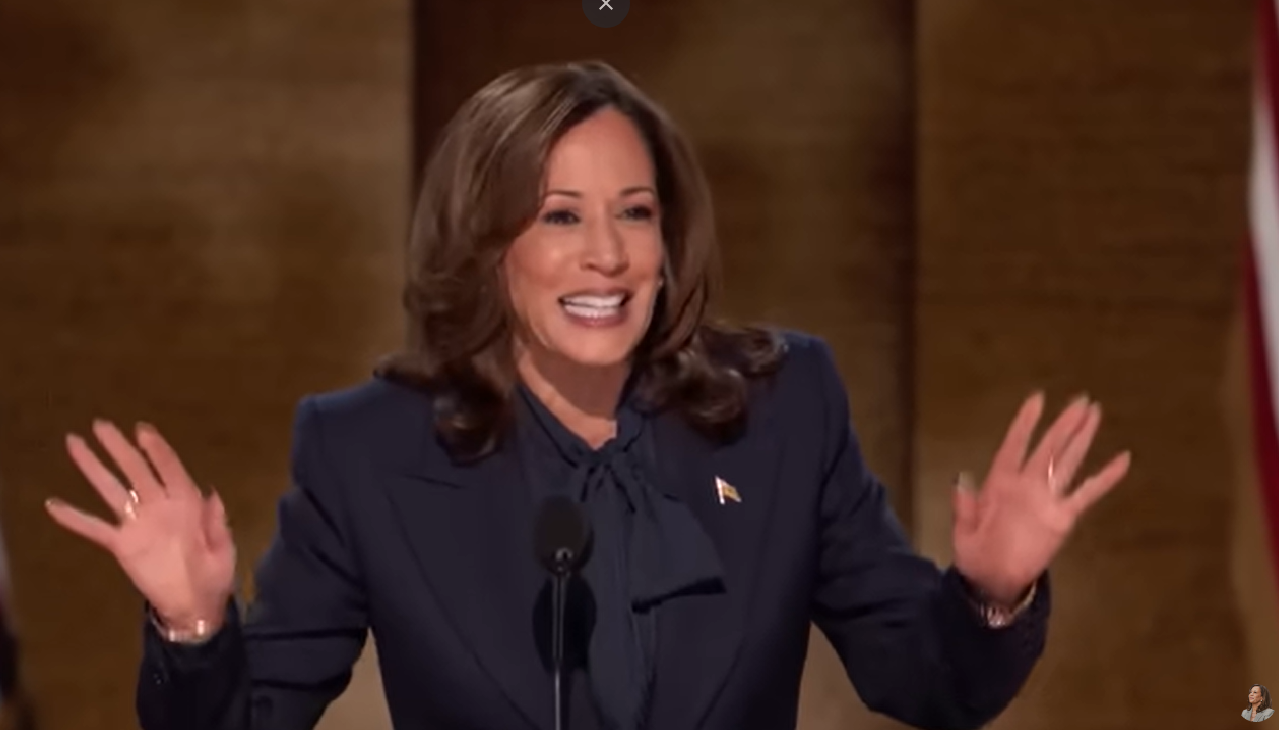In her own words: What remains for Maria Quiñones Sánchez’s legacy
The weather, at a near-cloudless 76 degrees, was unlike anything Philadelphia had experienced in months. Maria Quiñones Sánchez was soaking up every bit of sun with a brief morsel of relief from the scrutiny she had faced over the last year.
As of Wednesday, April 25, her schedule remained packed still. It wasn’t common for her to take a break, let alone a quick vacation.
Agreeing to meet for an exit interview inside her campaign’s headquarters in Center City, Quiñones Sánchez, a local government stoic and former mayoral candidate who drove the continuing conversation around Latinos in Philadelphia beyond wayward elections, could only think about her trip to Puerto Rico for a minute.
Quiñones Sánchez was clothed in an emerald green jumpsuit overlaid with a multicolored wrap that swirled twice over her shoulders and spoke about having some respite and shopping. She had a trip later that night to see some family and catch up on some shopping before heading back to Philly and wrapping up loose ends before the May primary.
Those loose ends? Mobilizing the Latino community to vote, a possible endorsement, and writing an agenda that outlined a “role in the future of the city” for Spanish-speaking communities that “cannot be denied,” part of the agenda reads.
And indeed, Quiñones Sánchez affirmed her community’s place in the tenth-largest city in America.
Still, there are more questions than answers about whether she’ll endorse and who, where her focus will be in the coming weeks, and what’s next in her career.
Racing to be seen
September was fast approaching, and then-District 7 Councilmember Quiñones Sánchez and the team she had assembled to run the mayoral crusade were scrambling to secure her seat in District 7. They were behind schedule, and valuable time in the Summer to begin fundraising was lost, which had been her primary concern well before she announced.
Months, countless forums with key stakeholders, and hundreds of thousands in campaign expenses later, fundraising deprived the team’s ability to hold enough momentum to primary day, May 16.
“It gets to a point where you want to be responsible to the people who support you. Our money was pieced together by a very diverse group of folks, mainly small businesses. Folks who knew that I could be a voice for them, and that had access to government through me,” noted Quiñones Sánchez.
“But I had a responsibility to them, to make a decision and not continue a campaign that would end up in debt.”
Philly discovered on Easter Sunday that it would not have a Latina on the primary ballot. Days after suspending her campaign and being described as ‘honorable’ for narrowing the candidate pool, Quiñones Sánchez wasn’t necessarily pleased.
Are Latinos in the room with us right now?
A Latino Forum taking place at Esperanza’s headquarters in Kensington, without a Latino candidate, displayed how the remaining contenders were still disjoined from Philly’s Spanish-speaking population.
“The irony, the frustration, that they would know better. They had the prelude of an agenda that was issued to them. You know, obviously, all the candidates reached out directly or indirectly. I gave them the agenda,” said Quiñones Sánchez, frustrated at the performance that evening.
Within hours of stepping down as a mayoral candidate, Quiñones Sánchez left her former opponents a goldmine. An Agenda Latina that summarized what she believed to be the most pressing challenges facing the community she represented during a 14-year incumbency in City Hall.
“I gave them the agenda. And I said, ‘Go there Monday speaking truth to power,’” she voiced, speaking about a comprehensive list of items to support the city’s Latino community, everything from language access, diverse hiring practices, housing and education equity, poverty, and public safety.
But onstage, candidates struggled to keep up, and while remarks were big on promises, it was zilch on the details. Other than Republican David Oh — who noted his staff already included Spanish-speaking members in his office — the mayoral hopefuls struggled even to name Latinos they’d tap for their administrations.
That didn’t stop candidates from naming Quiñones Sánchez upwards of eight times.
“Agenda Latina is based on issues that impact all communities. But the fact that candidates can't speak specifically right to any of those issues… getting that message to people and making them feel like their voices and their vote will count.”
But with no Spanish-language campaign materials or available translations on a website makes it difficult to recognize whether candidates are committed to reaching voters outside the ward and union system.
Even less clear is whether candidates agree with her assessment of the pending roadblocks.
One panel after the next, Quiñones Sánchez grew increasingly frustrated because she saw that “these people really didn’t get it.” For some, she said, it’s a vanity campaign, while for others, it’s a game of whack-a-poll.
“Everything was poll driven. Everybody was talking about crime. But it's like. I represent neighborhoods that have never been safe. And all of a sudden, there's crime.”
When it came to addressing issues outside of the polls, forum attendees would be hard-pressed to hear about so much as one Latino artist, as was the case at an arts forum hosted at Taller Puertorriqueño, whose executive director noted that she’d again heard multiple promises, but fell short on concrete items.
Will voters from the 7th district see hope in candidates beyond their longtime political usher and inspire a diverse turnout this cycle?
Under the radar
Tomás Sánchez, son of Maria, remembers his life as one prolonged political campaign. It’s the sort of life few experience or understand, Sánchez told AL DÍA.
Not unlike his peers, though, Sánchez — a second-year Temple law student — sees himself as a kid from el barrio who just so happens to go out of his way to separate himself from his parent’s sweeping shadow.
“I choose to leave out certain details, like my parents are very involved in the community. And that's usually where the extent of how I talk about my parents just so it allows people to kind of make their own impression of me as an individual,” he said.
But Sánchez is the spitting image of his mom, who doesn’t speak in quotes or catchphrases. He spends time onerously building his points through context and his own experience.
At Penn State, he was a tireless advocate for Latino voices on campus. He was president of the
Latino Caucus, where much of his attention was on uniting the bickering Latino clubs, drafting a new constitution, and rallying members toward a common cause.
It wasn’t all that different from what he experienced growing up in Philly, surrounded by divided political leaders. Indeed, the best-known secret in Philly politics is that swipes come from your allies and not your opponents.
“Just seeing my mom constantly do that throughout my youth really inspired me to kind of be doing that same thing,” he said, emphasizing that unity among Latinos challenged a system that worked to keep them separate.
“They're benefiting from us being separated. As Latinos, we just break ourselves down from the inside… seeing that happen in Philly, seeing my mom constantly having these struggles, and then going to Penn State and then seeing those same struggles for myself. It was like eye-opening.”
Staying grounded
Even though Sánchez tries to stick to a normal routine, he is keenly aware of his background, lending him a sense of obligation to give back to the barrio that uplifted him. That privilege, he said, is what kept him rooted in his community.
“My parents tried to instill in me that it's not an obligation,” he stressed effusively. “But there are very few Latinos that have access to the education quality that I have access to, the people that I have access to. A 24-year-old kid who can text a State Representative.”
Sure, Sánchez could take up his career elsewhere, “get mine, be good,” as he puts it.
And “where does that leave the community?” he asked. “In the same place, with the same people eating it, with the same power structures and the party machine that has been so instilled with all these people.”
Sánchez, who is as cutting as his last name would suggest, said leaving “feels like it would be a disservice.”
Service by sacrifice
Sánchez believes “no one understands how much [Quiñones Sánchez] cared about her constituents.”
So much, in fact, that it “fundamentally shaped me as who I am and how I see my role in society, in the world, in such magnificent ways. So there's that side of just having the most amazing role model.”
But, Sánchez said, “there's that other side of the coin that people don't really realize. The sacrifice from family. The fact that I knew my mom wasn't going to be at my soccer games,” he reminisced.
CONTENIDO RELACIONADO
He doesn’t resent his mom for it because despite being absent from that soccer game, she mothered her community like she would her family. “What she was going to do was make sure that Kensington Soccer Club was getting the funding they needed. That's where I played.”
“I think it's important to recognize that when you know that there are two sides to this and that people that people don't realize the sacrifices that are being [made] by, like, elected officials, families, to put them in that position, to help them continue to thrive in that position.”
“But I never like to dwell on it.”
Onward
Fourteen exhaustive years in City Hall and a mayoral race where Quiñones Sánchez was erased by money and visibility, what’s next?
For her, the mayor’s office felt like the next natural step. In an interview with her successor, current District 7 Council member Quetcy Lozada, the mayor’s office “was always the goal.”
But Quiñones Sánchez wasn’t disappointed, she told AL DÍA.
“I knew people that people would look at it as ‘How dare her?’ Being the most qualified and the most prepared clearly is not necessarily the top requirement for the job.”
Among the candidates, Quiñones Sánchez spent the most time in City Hall, rivaled only by former City Controller Rebecca Rhynhart, who worked in the budget office at several levels and for multiple administrations.
Quiñones Sánchez was also a lone voice in Council who brought forth language access — included in the Agenda Latina — as well as concerns with rising raids from the Immigrations and Customs Enforcement officers, asking the administration to reaffirm its status as a sanctuary city.
These issues, championed from her pulpit, were also in the campaign. Quiñones Sánchez had also been a candidate who humanized Kensington, taking a different approach that didn’t lean on law enforcement — but on blight and poverty,
“Even as we exited, we added something to the campaign that has been missing; these conversations around inclusiveness, equity, and inclusion.”
Even as she exits the race, Quiñones Sánchez is far from the sidelines. “I think there is a sense of immediacy and urgency. One of the cultural aspects of being Puerto Rican and Latino is that it’s easier to motivate us when we’re angry.”
She hopes to hone the energy produced from the mayor’s race to galvanize her community beyond the 7th district and remind Spanish-speaking voters across Philly households of their voice.
It might be a tricky mission to embark on. Latino voters are notoriously difficult to mobilize beyond registration, and groups — including Quiñones Sánchez and her successor, Lozada — have for years attempted to course-correct voter turnout.
“I think messaging them and saying, ‘Let’s pick the next mayor together,’ is a rallying call. And my responsibility as I exit this stage is to help folks see that we can determine the outcome of this election.”
Sánchez Jr. sees it as an opportunity for his mom, who is no longer beholden to district-level politics.
Will she endorse?
Quiñones Sánchez is yet to cast her support for any candidate, but history gives onlookers a good idea of where she might lean.
Jeff Brown, a millionaire grocer whose candidacy has been mired by questions about his donor base and affinity for Philly unions, recently offered her a cabinet position. When Quiñones Sánchez asked him to name minority members on his board of directors, he could not mention any.
“He's not making me a token of anything. That's insulting.”
Of the other candidates, she’s skeptical. “I look at Rebecca's candidacy in particular, as one where her privilege has really allowed her to enter this race, and negate the work, the harder work, and the harder trajectory that Councilwoman Parker and I have had to live,” she said.
“And so she's gonna have to do a lot to convince me that this is not just an exercise of, you know, ‘I can save these people,’ but there's some real respect to the trajectory of our work.”
Asked whether she’d endorse Parker, who faces steep criticism for her law enforcement-centered agenda, in addition to the establishment coalition she’s built over the last few months, Quiñones Sánchez turns to her lived experience.
“At least that lived experience, the value of sitting at this table because I set this table, not because I was invited here, is a perspective that is missing in these conversations with these folks with money.”
“I've always talked about the billionaire's club and then the millionaire's club. Both [Helen Gym] and Rebecca are in that millionaire’s club. I don't doubt that they sincerely care about some of the issues that are important to me, but they don't live it.”










DEJE UN COMENTARIO:
¡Únete a la discusión! Deja un comentario.